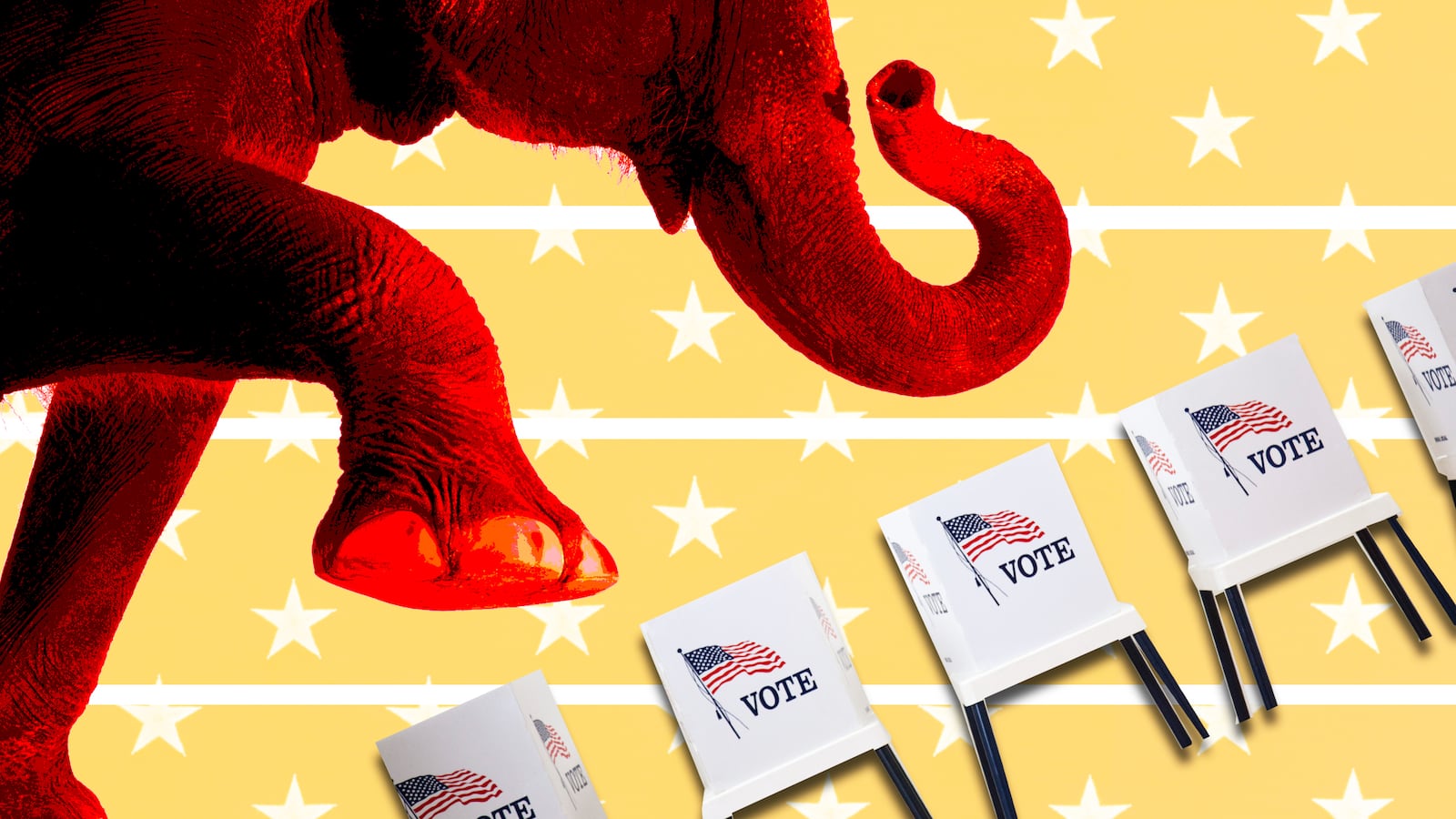As Trumpism becomes harder for Reagan conservatives to abide, an almost sacrilegious notion has begun to pop up on the right: For the good of conservatism (and America), Democrats must win the mid-terms.
This idea, which I first heard expressed a few months ago, has been gaining steam. “I really am a Republican In Name Only,” lamented Tom Nichols, a professor of national security affairs at the Naval War College, “because I actively want to see the Republicans defeated—soundly—in 2018 (and in 2020, if the president is not primaried out of his seat).
“I am now a member of a party I want to see cast into the political wilderness for a few years — or longer, if that’s what it takes to break the fever,” Nichols wrote way back in February.
Since Nichols’ column, other lifelong Republicans have joined him in voicing their fervent hope that Democrats win back the House in November.
“I have never voted for a Democrat for a federal or state office in my life,” wrote conservative columnist John Ziegler last week. “This year, much to my amazement and disappointment, not only will I be likely be voting for Democrats at that level, I will actually be rooting for Democrats to win back at least the House of Representatives.”
“I do hope Democrats win the House,” proclaimed Pete Wehner, the former deputy director of speechwriting for President George W. Bush, during a recent conversation with Democracy Journal. “I say that not because I’m a liberal or pro-Democrat, but because it’s important for the Republican Party and for the country.”
“For the sake of conservatism and the party, it’s essential that Donald Trump’s grip on them be loosened and Trumpism be repudiated,” Wehner continued. “The best way to do that is for Republicans to lose because they’ve been associated with Trump.”
In that same Democracy Journal roundtable, David Frum made a similar argument: “My hope for 2018,” he said, is “that Adam Schiff replaces Devin Nunes as chairman of the House Intelligence Committee…”
These are not people who want to burn it all down for the sake of burning it all down, even if their strategy sounds something akin to the “We had to destroy the village in order to save it” trope. Instead, these are real-life conservatives who have reached the end of their ropes. And they are presenting perfectly rational reasons why electoral defeat might be the last best chance for purging the part of Reagan from its newfound Trumpist impulses.
The goal is to force an awakening—a sort of defibrillation treatment--that might shock the GOP back to its senses. “I am not a ‘Never Trumper’ so much as I am a ‘Republican in exile,’ explained Nichols, “as I wait for an end to the occupation of the party by people who never cared about its history or beliefs.”
Ziegler, likewise, has a plausible rationale for this strategy. Unless Democrats win, he says, “the Republican Party will believe, not without good reason, that embracing Trumpism has no electoral downside and that this philosophy, far more consistent with third-world dictatorships than with the United States of America, should be the way of the future.”
I’m not sure I’m quite where Nichols and Ziegler and Wehner and Frum have arrived, but I’m close enough to at least appreciate the merits of their theory. Whether Trump is waxing poetic about the virtues of authoritarianism, his love of protective tariffs, or the inhumane policy of separating families at the border (just to mention three most recent examples), it is harder and harder for decent conservatives to justify supporting this administration.
The question then becomes, is it worth doing anything to try to take back the party? Is it worth committing sabotage? And would doing so make one a traitor or a hero?
And—challenging the premise here—would losing the House even be enough to force a “come to Jesus” moment on the right?
If “Never Trumpers” are perceived to be “throwing the game,” they could become convenient scapegoats. The GOP base might come to believe a midterm loss wasn’t because of Trump’s failures, but rather, because he was “stabbed in the back.” This narrative would only serve to prevent the GOP from making the very internal changes that the people proposing this theory hope that a mid-term spanking might force.
To be sure, sometimes winning is losing and losing is winning. In sports, "tanking" takes place in order to get a better draft pick. The logic says that if you can’t win this time around, being absolutely horrible is better than being mildly horrible. But politics is different. Unless gambling is involved, individual athletes rarely tank a game unilaterally—it’s usually sanctioned (albeit clandestinely) by the team. What is more, while there may be 82 games in a basketball season, whoever wins in November will be in the majority for two full years. It’s one thing to throw a game, but it’s an entirely different thing to throw a cycle.
Still, we’ve come to the point where half-measures haven’t worked. Two years ago, I wrote an essay titled “Jesus Take The Lever.” In that piece, I argued that sitting out the presidential election was an honorable compromise. With Hillary Clinton out of the picture, and with Trumpism reaching new lows, it is increasing difficult to make this argument today.
The fact that so many once-loyal Republicans are seriously hoping Democrats win in November tells you all you need to know.






